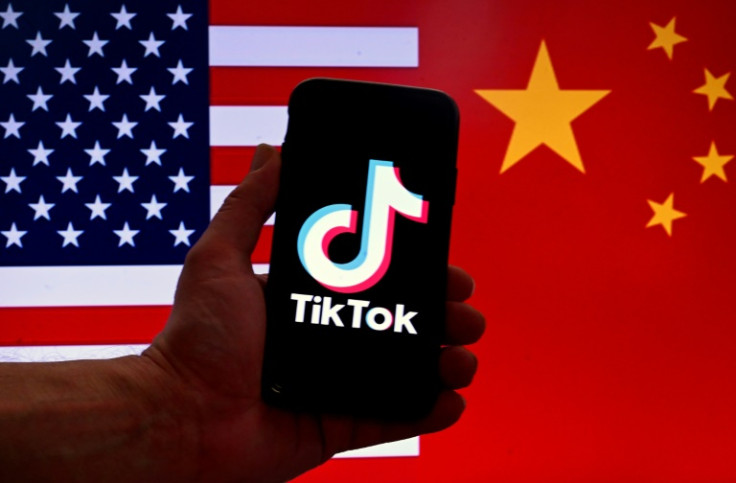
TikTok sued the U.S. government on Tuesday, arguing that the recently-passed law that compels the company to divest itself or face a ban in the country will stifle free speech and hurt people who benefit financially from its use, namely content creators and small business owners.
"For the first time in history, Congress has enacted a law that subjects a single, named speech platform to a permanent, nationwide ban, and bars every American from participating in a unique online community with more than 1 billion people worldwide," the company said on Tuesday in a presentation before a U.S. Court of Appeals in the District of Columbia.
President Joe Biden recently signed the law with the TikTok provision, which was included in a broader package that included foreign aid for Ukraine and Israel.
TikTok has repeatedly denied any ties with the Chinese government, with its CEO saying the company never shared U.S. data with Chinese authorities and won't do it if asked.
According to a recent study by Oxford Economics and backed by the platform, TikTok helps more than seven million businesses in the U.S., generating billions of dollars and supporting almost a quarter of a million jobs.
"There is no question: the Act will force a shutdown of TikTok by January 19, 2025, silencing the 170 million Americans who use the platform to communicate in ways that cannot be replicated elsewhere," the company added, according to a report by Bloomberg.
Millions of Latinos in the country are staring down at the possibility of not being able to use the app, which they disproportionately log into compared to other demographics in the country.
A recent study by the Pew Research Center showed that almost half of all Latino adults (49%) use TikTok, the highest proportion for any demographic. They were followed by Black adults (39%), while smaller percentages of Asian (29%) and White (28%) adults report using the social media app.
Moreover, teens aged between 13 and 17 saw the highest rates of respondents for all social media usage, but there were three platforms that stood out: the main one was TikTok, where almost one out of every three Hispanics (32 percent) said they use it "almost constantly," when the country-wide figure is 17 percent. 10 percent of White teens and 20 percent of Black teens gave the same answer.
However, backers not only include congresspeople. The American Psychological Association (APA), a top group in the country, recently urged lawmakers and social media companies to do more to protect minors from the networks' impact on their mental health.
Although not circumscribed to TikTok, they said that features like endless scrolling and push notifications are "particularly risky" addictive experiences, and the fact that their brains have not fully developed yet mean it's harder for them to disengage.
© 2024 Latin Times. All rights reserved. Do not reproduce without permission.
TRAC report reveals: Two-Thirds of asylum seekers granted stay in U.S. over last decade
Latino migrants among minors found in Alabama poultry plant belonging to company with troubled history
A look at the gold and cash found at Sen. Bob Menendez's house, key in his bribery trial
Another front opens for Colombia's Petro as prison mutiny sees murder of warden
